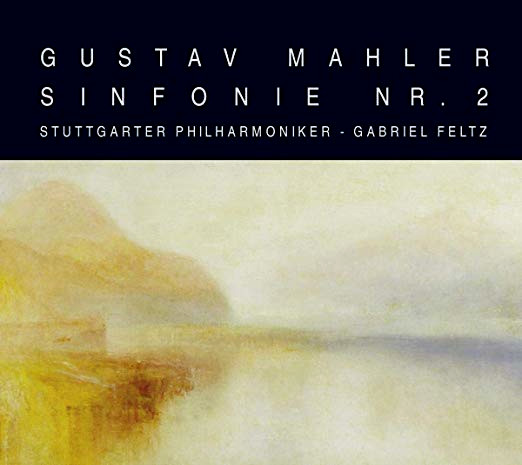
ESSENTIAL RECORDINGS

The booklet notes of this 'live' recording open with this statement by conductor Gabriel Feltz himself: "Gustav Mahler's symphonies have accompanied me since I was a youth of about 13. It is certainly not unusual for a youth who is interested in orchestral music to be fascinated by these works once he has discovered them. The abundance and complexity of the scores, which I was fortunately able to study in my early years, was however, somewhat overpowering. The composer's aspiration to create "whole worlds" is overwhelming, and which young person is averse to being overwhelmed?"
The same could be said about the composer himself. When compared to his mature symphonies, 5 through 10, the Symphony No. 2 in C minor "Resurrection Symphony" is obviously an overwhelming tour de force whose ebullience to the point of euphoria certainly brings home the fact that it's creation was undertaken when Gustav Mahler was only 28 years old and still emotionally vulnerable to epic grandiosity. Mahler's innermost thoughts and feelings are writ large all over the score. And those elemental forces are precisely what Gabriel Feltz and the members of the Stuttgart Philharmonic Orchestra uncover and expose in this thrilling performance.
Feltz's extensive use of rubato does not detract but rather enhances the various emotional states that abound in the opening Allegro maestoso. A great moment is when the opening measures arise again with more vehemence around the middle of the movement, you can feel in what follows a sudden dark aura emanate from the orchestra. And when the exequial march resumes the conductor's slower pacing is exemplary, and makes the quickening of the pulse which ensues even more pertinent. And when at the 15:45 mark the full orchestra comes down and pounds life into the ground, it comes down hard. This all helps to make the first glimpse of heaven which begins at the 17:45 mark even more emphatic and effective. Whenever I hear the second movement of this symphony, I can't help but picture a young man being instructed to dance a Landler or waltz and enjoy doing it, in other words enjoy life at all costs, otherwise suffer the consequences, and this unease or ambivalence is well captured in this account. This is the first recording in which I notice the importance of the harp as part of the orchestration in the third movement. And the sudden anger of man at the realization of his fate near the end of the movement is well projected. Mezzo-soprano Tanja Ariane Baumgartner's voice is rich and impassioned, and well conveys the meaning within the text of the Urlicht movement.
I never thought I would see this, but at 39:24 minutes long the final movement is almost a minute longer than the famous Bernstein/New York live recording on Deutsche Grammophon, which most critics at the time bemoaned as being way too slow. I completely disagree with those critics, as one should never rush the music of Gustav Mahler, especially in a movement as pregnant with thematic links, ideas and concepts as this one. The fact that this is a 'live' recording raises the whole thing to a quasi-religious experience. Feltz never loses track of any of the important threads. The offstage horns are effectively balanced. Both soprano Chen Reiss and mezzo Baumgartner sing their roles as if they mean it. When the Czech Philharmonic Choir Brno first come in, all but a whisper and so unhurried, you can't help but hold your breath, and then recoil when they give it all they have at the end. An impressive account!
Over the years I've heard so many recordings of this wonderful symphony that I've lost count. This new version now sits within the top five. Gabriel Feltz "gets" Mahler's idiosyncrasies and actually draws attention to them for all to enjoy!
Jean-Yves Duperron - August 2019